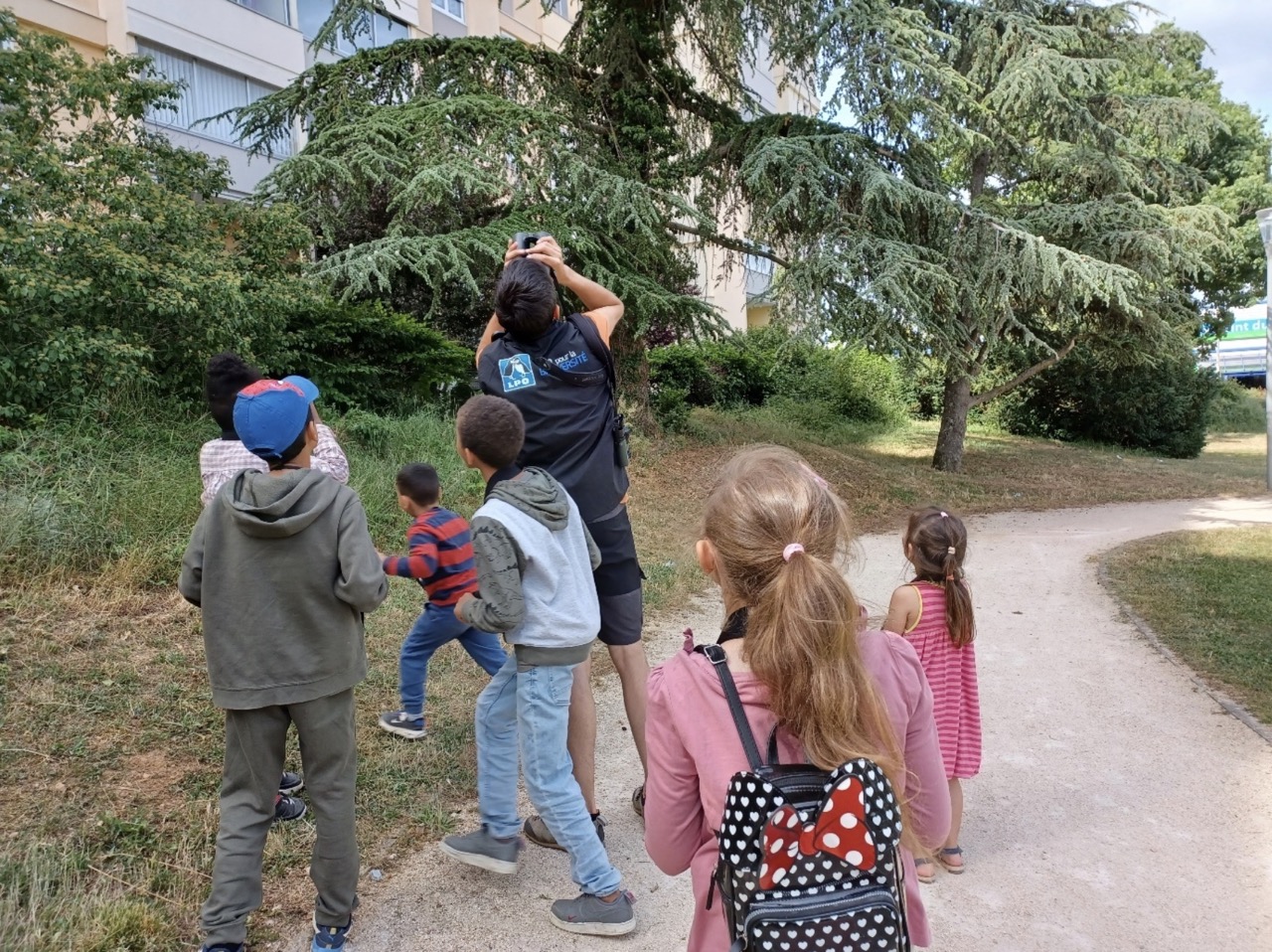Every year on May 22, the world celebrates the International Day for Biological Diversity. It is an opportunity to highlight the crucial importance of biodiversity for our planet and to raise awareness of the urgent need to preserve it.
This awareness, took place 30 years ago. The General Assembly of the United Nations adopted the text of the Convention on Biological Diversity, with the objective of preserving diversity, the sustainable use of its components and genetic resources, as well as the fair and equitable sharing of the benefits derived from them.
For this year 2023, the theme is: From agreement to action: build back biodiversity. This choice is in line with the adoption of the Kunming-Montreal Global Biodiversity Framework, an agreement signed in December 2022. A new dynamic that aims to halt and reverse the loss of nature through four global targets by 2025: healthy ecosystems and species, sustainable use of biodiversity, equitable benefit sharing, and implementation and financing.
Caring for life and our planet is what has driven the ENGIE Foundation for over 30 years. With 46% of its projects dedicated to access to renewable and sustainable energy and biodiversity in 2023, the ENGIE Foundation is committed to the environment year after year. The objective is to participate in ambitious and impactful projects and to take part in the collective effort of the Agenda 2030 through the achievement of the Sustainable Development Goals (SDGs)
With the ENGIE Foundation, act for the preservation of biodiversity in France and internationally :
- Protecting biodiversity and ecosystems
- Better understand and explore the richness of biodiversity
- Educate and raise awareness about the preservation of biodiversity
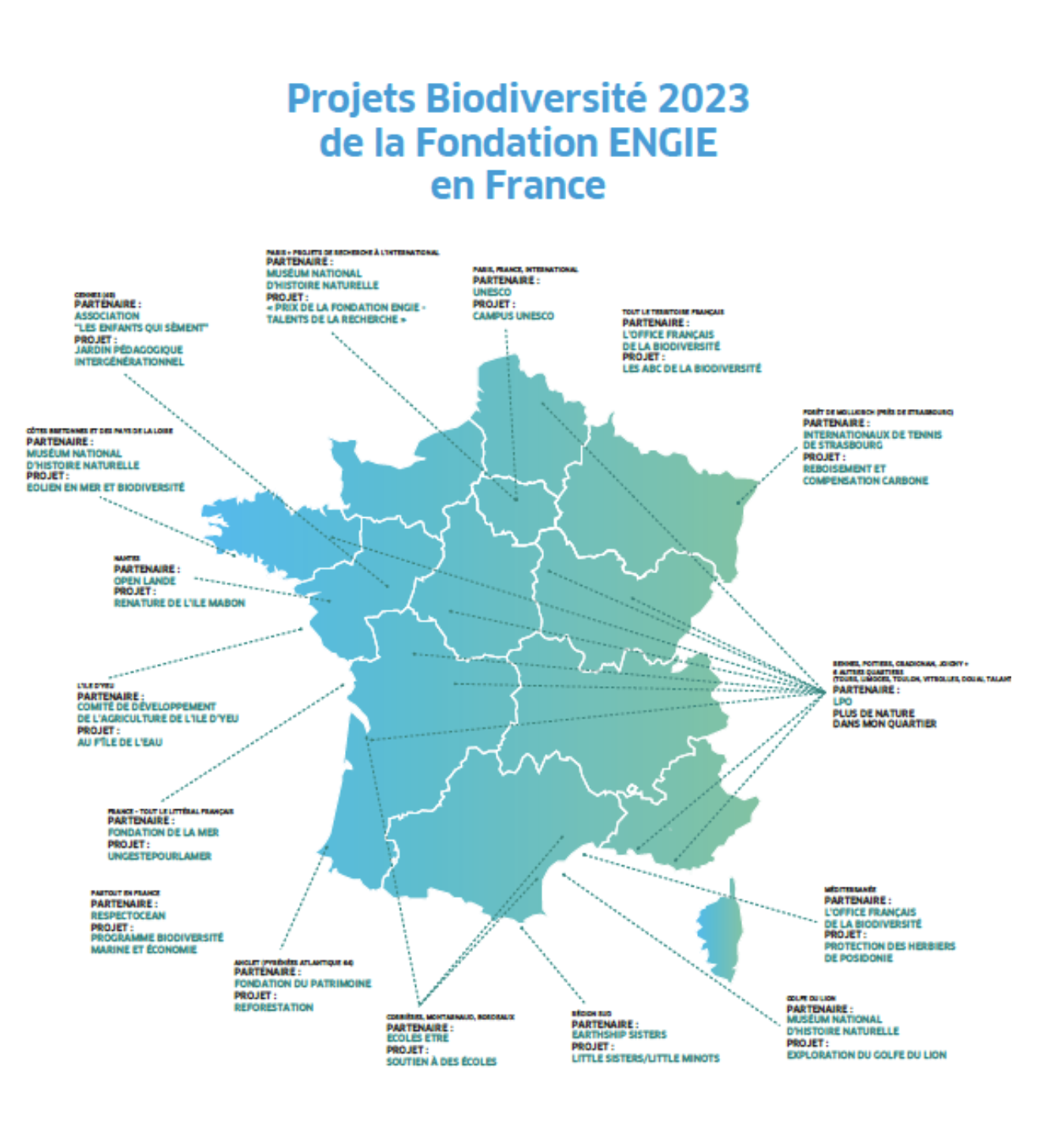
"Thirty years ago, our Corporate Foundation was created to carry out projects to restore major natural sites: to limit the impact of human activity on biodiversity, to preserve and restore it, and to unite employees around a great cause. This commitment to biodiversity has remained a strong marker of our action, and we wanted it to shape the 2020-2025 mandate of our Foundation. However, at the beginning of the 21st century, our outlook and requirements have changed. Fortunately, we have witnessed a global awareness of the challenges of global warming. A company like ours has made it part of its raison d'être to make a just transition to a low-carbon economy with positive impacts for the planet.In the face of climate change, we must not forget Nature in the broadest sense, including biodiversity. We must not dissociate them, they are intrinsically linked. Global warming is the third major cause of biodiversity erosion. If we see the consequences of climate change, the damage on biodiversity is quieter, but just as dramatic. Some species have already disappeared. And it is the well-being and health of humanity that are at stake. Ecosystems have an essential role to play in our resilience. The role of the ocean is essential, as is the fight against land artificialisation and the preservation of wetlands.”
Jean-Pierre Clamadieu, Chairman of the Board of Directors of ENGIE, President of the ENGIE Foundation.
To act in favor of biodiversity, the ENGIE Foundation relies on experts: Meeting with 2 administrators committed to biodiversity
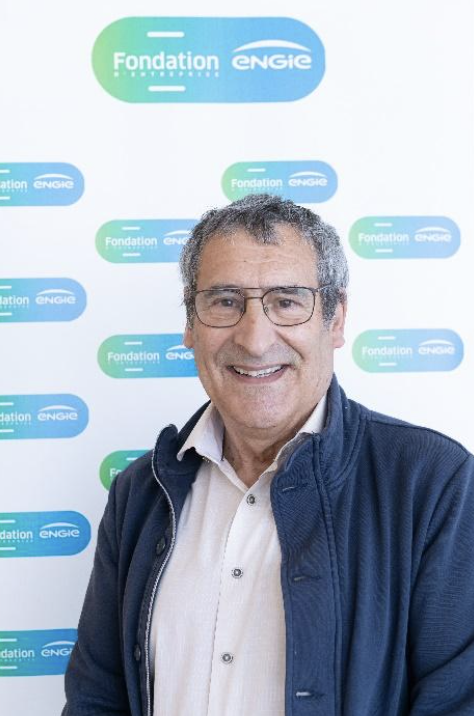
Gilles Bœuf, Professor emeritus at Soborne University, member of the Scientific Council of the French Office of Biodiversity (OFB), President of the Center of Study and Expertise on Biomimetism (CEEBIOS), administrator of the ENGIE Foundation.
“Let’s treat the issue of biodiversity on the same level as the issue of climate change. The urgency is just as strong and the two are linked.
Gilles Boeuf is a director of the ENGIE Foundation and a specialist in environmental physiology and biodiversity. Professor emeritus at Sorbonne University (Pierre and Marie Curie University, UPMC), assigned to the Oceanological Observatory of Banyuls after spending 20 years at the IFREMER in Brest (French Research Institute for Exploitation of the Sea). He was President of the National Museum of Natural History (MNHN), between 2009 and 2015.
He was also a visiting professor at the Collège de France for the academic year 2013- 2014, in the “Development of the Sea” Chair.
2014, on the Chair “Sustainable development, energy, environment and societies” and had then dedicated his teaching to the interactions between biodiversity and humanity. He was for two years scientific advisor to the cabinet of the Minister of the Environment, Energy and the Sea. Today he is member of the Scientific Council of the French Office of Biodiversity, visiting professor at AgroParisTech and president of the SCIC CEEBIOS, dedicated to biomimicry. In 2013, he was awarded the Albert I Great Medal of Monaco for his entire career, dedicated to the seas and the ocean. He is a Regional Councillor for Nouvelle-Aquitaine, in charge of the “One health” program.
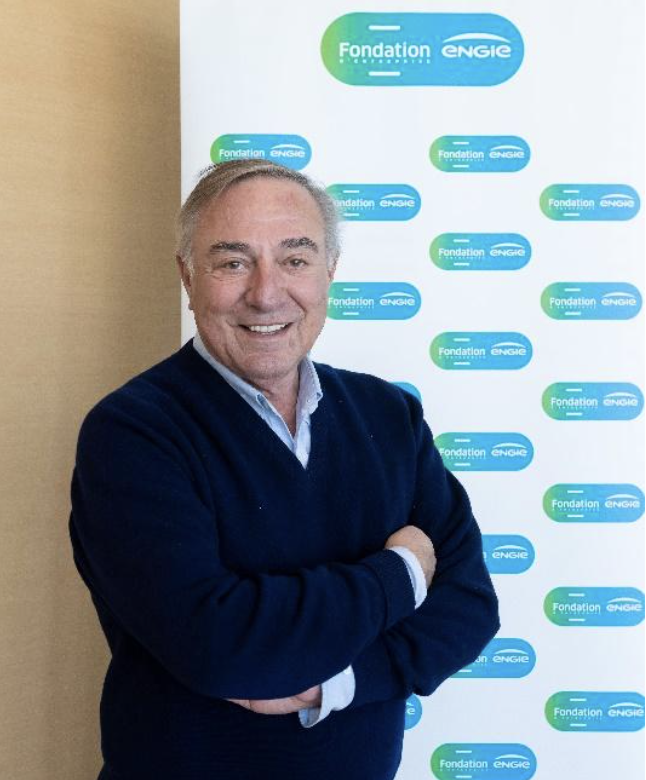
Allain Bourgain Dubourg, President of the League for the Protection of Birds and of the Strategic Orientation Council of the Foundation for Research on Biodiversity (FRB), Director of the ENGIE Foundation.
A pioneer in the field of environmental commitment, for more than 30 years Allain Bougrain Dubourg has presented animal-related programs on television and radio, notably on France Télévision, France Inter and RTL. Producer and director of numerous animal documentaries, he has just published a “Dictionnaire amoureux des oiseaux”. An inspiring figure, he has contributed to making ecology a mainstream issue. As a director of the ENGIE Corporate Foundation, he participates in the choice of projects carried.
The commitments of the ENGIE Foundation
Protecting biodiversity and ecosystems
With the GoodPlanet Foundation, development of sustainable beekeeping in Morocco

The ENGIE Foundation supports the GoodPlanet Foundation in the development of 10 beekeepers’ cooperatives in the Mesguina forest in Morocco to enable producers to develop their beekeeping activity in a profitable and sustainable way, as part of its commitment to biodiversity and climate.
Objectives: to support 95 beekeepers from 10 cooperatives and to raise awareness among 100 students from 9 rural schools about the preservation of bees.
With Friendship, mangroves restauration in Bangladesh

For more than 10 years, the ENGIE Foundation has been working alongside the NGO Friendship to build community capacities, encourage major contributions from women, facilitate access to solar energy, training and biodiversity protection. To combat the effects of global warming and provide communities with the means to develop, Friendship is developing mangrove restoration with the support of the ENGIE Foundation.
One of the notable assets of Bangladesh is the world’s largest mangrove forest, the Sundarbans, a UNESCO World Heritage Site. Unique and diversified coastal ecosystems, mangroves are a formidable tool in climate change mitigation due to their high CO2 absorption capacity.
However, many mangrove reforestation projects in Bangladesh are not sustainable because they consist of non-resilient monocultures, are not properly managed during the growth phase, are sometimes planted with species not adapted to the area, or do not take socio-economic factors into account.
The 14 hectares plantation project
The project supported by ENGIE Foundation is carried out in 3 areas located in 3 villages of Satkhira district (land is a scarce commodity in Bangladesh and it is difficult to have land in one piece available for reforestation).
The first two areas (30,000 trees) were planted in October 2022 by local communities under the supervision of Friendship and local forestry experts. The third (12,000 trees) is scheduled for May 2023. In total, nearly 2,000 meters of dikes will be protected against flooding thanks to this project, knowing that the damage caused by salt water can persist for a very long time (a flooded soil becomes unfit for cultivation for years, just as a breeding pond invaded by salt water can no longer be used).
Six community groups of 30 people received capacity building training (prior to planting) in seeds, nurseries and planting; they also each participated in the first follow-up meetings.
In total, 240 participants will be trained in the three zones, which corresponds to approximately 1,200 to 1,440 direct beneficiaries (family members). Indirect beneficiaries will be much more numerous. They are all the villagers, farmers, fishermen who will see their houses, their fields, their ponds, protected from flooding and salinization.
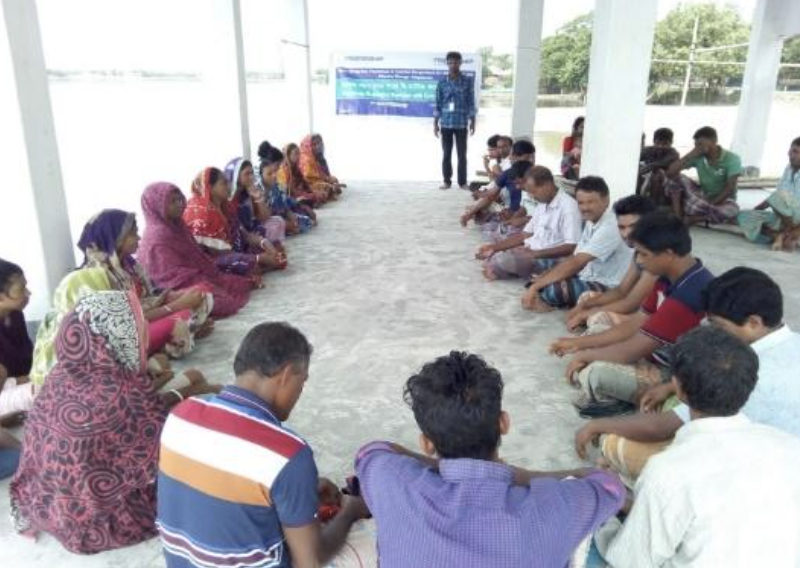
Better understand and explore the richness of biodiversity
With the French Office of Biodiversity, the ACB of Biodiversity
Raising awareness among the general public and public players about the issue of biodiversity in the heart of the Territories is one of the priorities of the ENGIE Foundation.
Since 2017, the French Office of Biodiversity (OFB) launches each year a call for projects in order to financially support the municipalities and the inter-municipal structures in the realization of their Atlas of the Communal Biodiversity (ABC In french).
An ACB is an approach that allows a municipality or an inter-municipal structure to know, preserve and enhance its natural heritage. It is an inventory of environments and species present on a given territory.
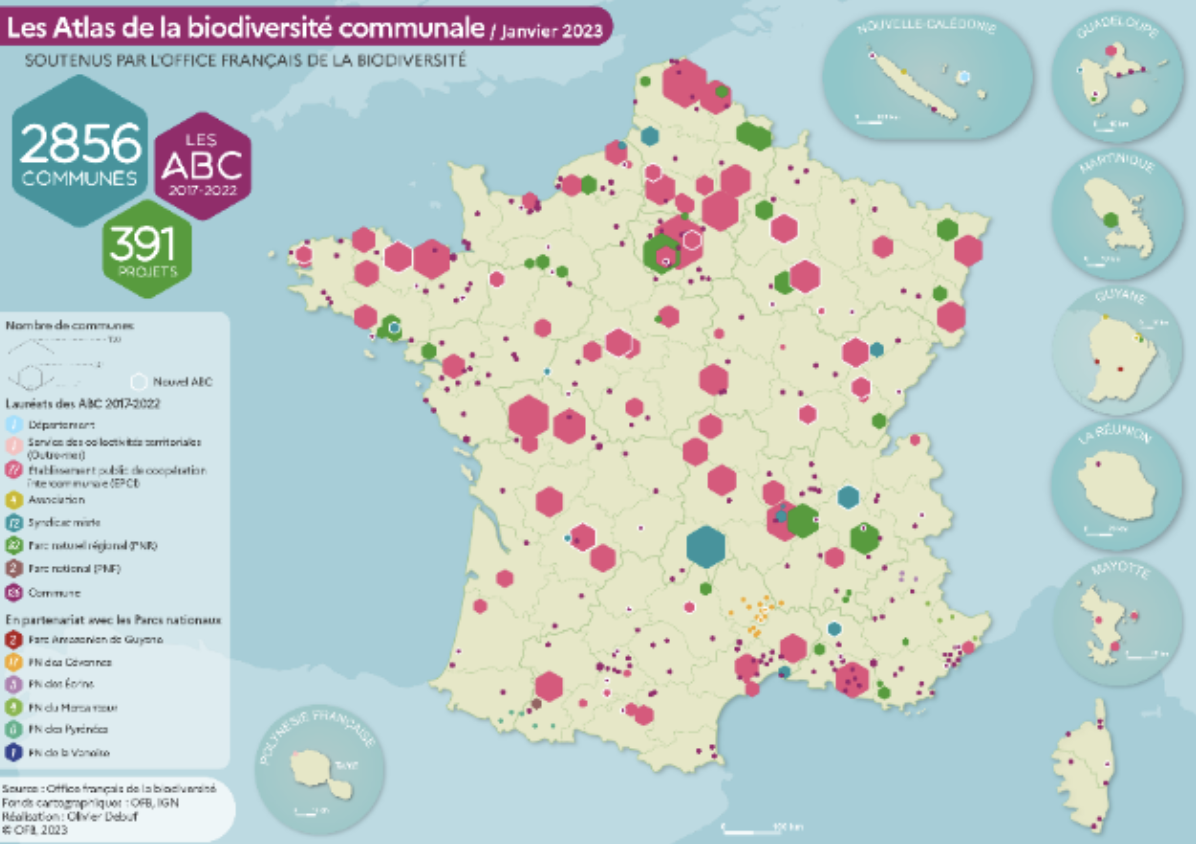
Since 2017 nearly 3,000 municipalities have been involved in an ACB and 400 projects have been carried out in metropolitan France and the French overseas territories.
Call for projects 2023 and support from the Engie Foundation
For the 2023 call for projects, the territories had until March 22 to submit their projects to the OFB. The winners will be announced in June.
To support this dynamic, the ENGIE Foundation has chosen to support the development and promotion of the program, to ensure its sustainability and to accompany the increase in quality of the projects, in particular through
– Thematic tools dedicated to local authorities for the realization of their ACB
– Collecting feedback from communities that have already carried out an ACB
– Networking between local authorities that have already carried out a ACB, those that have completed it and those that would like to start one, as part of a process of dissemination of good practices
– Actions in order to mobilize the circle of historical ACB partners and to attract the interest of new partners
– Finally, the organization of an annual trophy where the finalized ACBs that stand out will be rewarded, particularly from the point of view of knowledge (involvement of scientific colleges), citizen mobilization, and their long-term inclusion (federation of external partners).
Educating and raising awareness about the preservation of biodiversity
With the Ligue de Protection des Oiseaux LPO, the Plus de Nature dans mon quartier program
Environmental education and awareness-raising are strong drivers of the ENGIE Foundation’s action.
This citizen mobilization program combines biodiversity and social cohesion in the heart of the territories. It is organized around actions of awareness, preservation and integration of the biodiversity in the priority districts of the city policy. The LPO is leading the implementation of the program in collaboration with local actors, such as residents, schools, communities, social landlords and neighborhood associations.
The program is currently being deployed in a dozen pilot neighborhoods with a view to a national rollout in 2024.
In 2022, the program has raised awareness among 64 primary and secondary school classes in the 9 pilot districts, i.e. about 1,600 students and, through them, their families. Concrete actions (planting of tree strata, construction of nesting boxes, etc.) have been carried out each time.
